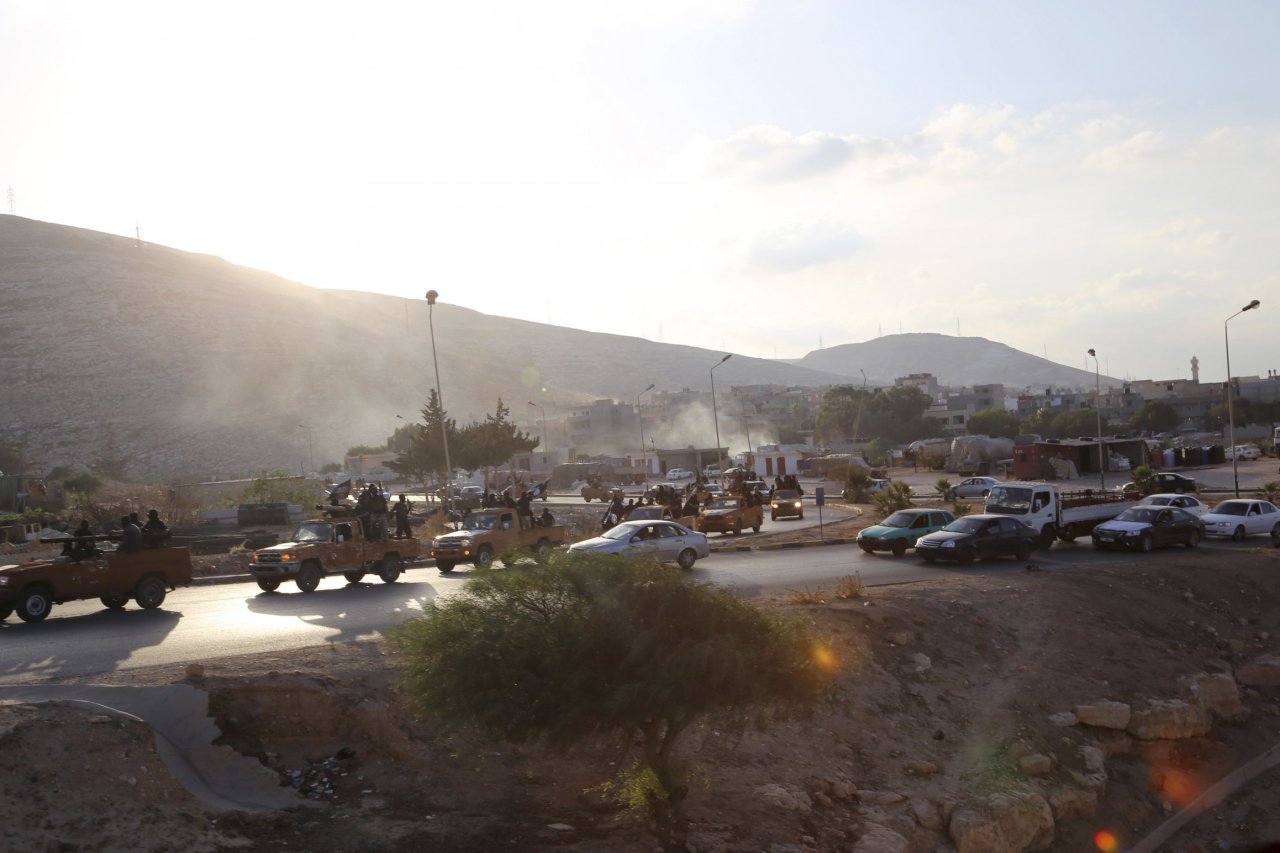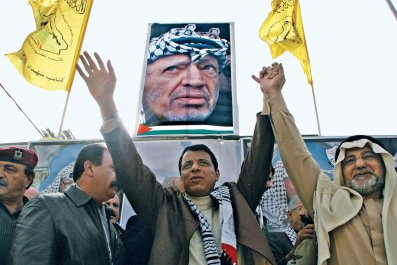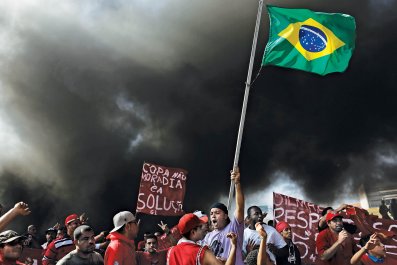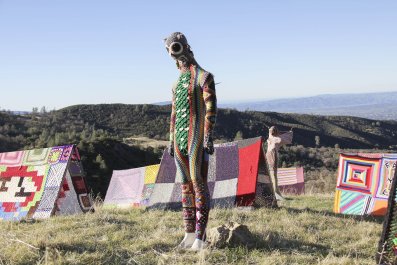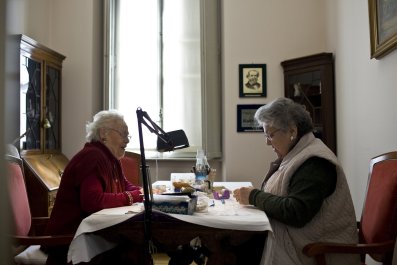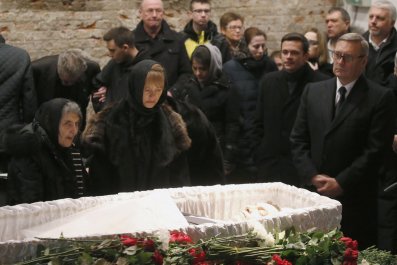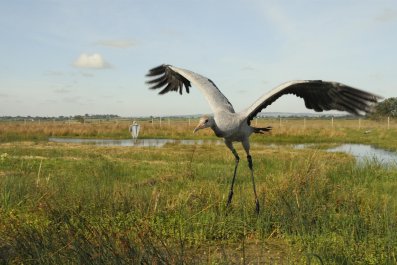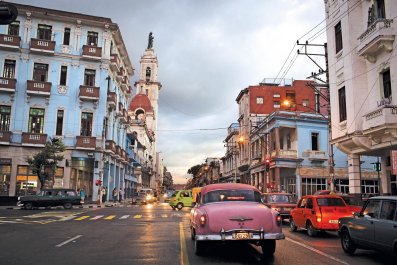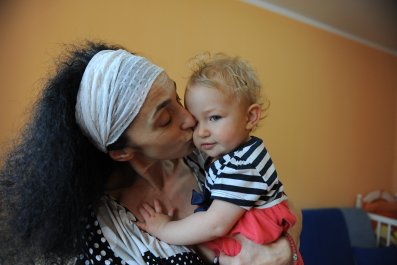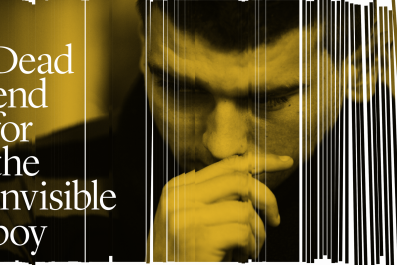On the sparkling blue waters of the Mediterranean lies a town with an idyllic coastline, at the foot of the Jebel Akhdar, or Green Mountain, just a half-day's sail from the shores of Greece and the tip of Italy, with bustling souks and colonial piazzas in its old city, baked by the heat of the North African sun.
Derna, a port town nestled on the northeastern Libyan coast, hosts a synagogue, a mosque, and both Byzantine and Catholic churches, evidence of a diversity at odds with the town's current predicament. This historic town – with only open sea between it and Europe – fell under the shadow of ISIS last year, when the radical Islamic Youth Shura Council declared Derna Wilyat Barqa (province of Barqa), an "Islamic emirate" and therefore an extension of the Iraqi-Syrian caliphate claimed by the terror group that calls itself Islamic State.
The pledge of allegiance refers to the historic name given to eastern Libya, Barqa, after Islamic armies conquered the ancient region of Cyrenaica in AD642. "It is incumbent on us to support this oppressed Islamic State that is taken as an enemy by those near and those far, among the infidels or the hypocrites, or those with dead souls alike," a statement released by the ISIS affiliate in June read, before it officially pledged allegiance in October.
Derna's cliff-side roads are lined with decaying residences, embodying the town's neglect under Muammar Gaddafi's rule and its decline in the years after his fall from grace, which has allowed ISIS's brutal brand of radical Islamism to proliferate. Its militants now patrol the town in Islamic police force cars and the group's black flag has been raised over key buildings.
To announce their opportunistic seizure of Derna, enabled by the security vacuum opened by Gaddafi's removal, the group's members paraded vehicles laden with ISIS flags through the town last October. Before this, ISIS caliph Abu Bakr al-Baghdadi dispatched a key aide, Yemeni national Abu Nabil al-Anbari, to oversee the affiliate's creation while, late last year, the eastern Libyan faction were buttressed by the arrival of at least 300 Libyan nationals, who had been fighting for the terror group in Iraq. It is believed that approximately 800 ISIS militants now operate in the town.
Despite the group occupying a number of government buildings in the contested central city of Sirte, Derna remains ISIS's only territorial conquest in North Africa. There is an ideological rival to ISIS in the town in the form of the al-Qaeda-linked Abu Slim Martyrs Brigade, but Derna, situated between the cities of Tobruk and Benghazi, has become the heartbeat of the ISIS's regional operation, with foreign fighters – predominantly Algerians, Egyptians, Sudanese, Saudis and Tunisians – pouring into some six training camps situated on the town's outskirts.
Derna, which has a population of approximately 100,000, already held a reputation within Libya as a conservative bosom of Islamism. The town provided a large number of the al-Qaida-linked foreign fighters participating in the insurgency against US-led forces during the Iraq War. Out of 112 Libyan fighters named and 606 documented overall in 2007, 52 emanated from Derna. Yet life in the town has taken a radical turn for the worse, becoming a hub of Salafist activity since the Libyan revolution.
An anti-ISIS activist living in Derna, who declined to be named for fear of their safety, speaks of a brutal Islamic authority – defined by beheadings, executions and assassinations, but also a regime that is facing an undercurrent of opposition brewing within the town.
When the Egyptian air force launched airstrikes on Derna's militants on 16 February following ISIS's beheading of 21 Coptic Christians, civilians opposed to ISIS rushed to their rooftops to watch the bombs drop. "It was a very heavy day for us but the people were very happy," says the activist. "We were like 'Yes they are coming! It's the day! It's the zero hour!'"
But, dissent in Derna comes at a price in the absence of any state authority. Three activists, Siraj Ghatish, Mohamed Battu and Mohamed al-Mesmari, were kidnapped last October after they posted a video to Facebook calling on the town's citizens to oppose ISIS. All three were found beheaded by a shopkeeper just a week later.
The activist details a friend's execution after he challenged the militants' pledge of allegiance to ISIS; recounts how another opponent's head was dumped in the town's historic al-Sahaba Mosque; and reveals that the town's main football stadium has been used by radicals to conduct an execution.
The activist has personally witnessed two public executions – of two Libyans in the town's main square and one Egyptian at the town's western entrance – and claims that 275 assassinations have taken place in the town since 2011 with no investigation. Human Rights Watch has documented dozens of assassinations of public officials, judges and security forces in Derna by extremists in the last year, such as former Libyan politician and women's rights campaigner Fariha Barkawi shot dead in the town last July.
The activist, who has lived in the town his entire life, says public floggings are given to those who are caught smoking, drinking or dealing drugs, and confirms that the town's university has been closed by the militants. "The people try to do something inside [the city] but the killings that happen inside Derna, without anyone taking responsibility to stop it, prevent the people of Derna from coming out of their fears and asking for their freedom," the activist says.
The extremists' control of Derna does not just threaten their opponents inside the city, but also the borders of Europe. The activist reveals that ISIS now controls the town's port and the seaport of Ras al-Helal, 47km (29 miles) west of Derna. At these ports, the group is in possession of a number of fishing boats large enough to make the treacherous Mediterranean crossing to southern Europe, a route traversed by thousands of desperate refugees every year. "It is a possibility," says the activist, when asked if the boats have the capability of making the perilous crossing to Europe. "They are like those which take the refugees to the Italy coast, the same size. They can take, like, 40 people."
Derna itself is situated just 306km (190 miles) from the shores of the Greek island of Crete, a journey only eight kilometres farther than the 298km (185-mile) crossing for refugees traveling from Libyan capital, Tripoli, to the Italian island of Lampedusa.
ISIS's evolution in the civil-war-torn country, with a growing presence in coastal cities west of Derna, particularly Benghazi, Sirte and Tripoli, has stoked fears among Italy's political and maritime circles about a "caliphate across the sea" that could see jihadis melt in with refugees attempting to grasp the golden ticket of European Union citizenship.
After Italy removed all of its diplomatic staff from Libya last month, because of the deteriorating security situation, Rome's defence minister, Roberta Pinotti, warned that the possibility of jihadi infiltration of southern Europe "could not be ruled out".
"We have been discussing this for months but now it has become urgent," she said. "The risk is imminent, we cannot wait any longer. Italy has national defence needs and cannot have a caliphate ruling across the shores from us."
Italian fishermen working in the waters off the country's southernmost islands, Linosa and Lampedusa, have even expressed their fears of an ISIS nautical operation, writing a letter to the Italian prime minister Matteo Renzi following ISIS's threat to "conquer Rome with Allah's permission" in the Coptic Christian beheading video. Totò Martello, president of the fishermen's consortium, wrote that the seamen are "frightened of being boarded" by terrorists at sea. "One can't live with the nightmare of not going home," the letter says, "we need to be protected and defended, but to work we need to be tranquil in a Mediterranean that every day becomes more the world's powder keg."
While Derna has been rendered a lawless outpost for almost four years since the Libyan civil war concluded, the security threat presented by ISIS's Mediterranean "emirate" – to both those who live there and the southern Europeans across the sea – has never been more critical. Yet the activist there remains defiant. "We lived with the Italian nuns for more than 50 years in peace. The city of education, pluralism and tolerance cannot be the city of terrorism."



